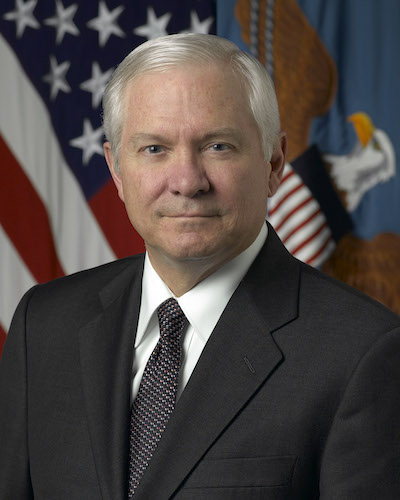Former Secretary of Defense Robert Gates said disruptions to the Red Sea by Houthi forces could go on indefinitely curtailing use of the Suez Canal and forcing ocean carriers to plan for long term redirection of shipping around the coast of Africa.
At the TPM24 conference produced by S&P at Long Beach California, Gates said: “Under those circumstances, they (the Houthis) may decide that they like the idea of controlling the amount of shipping going through the Red Sea, and we'll continue this for an indefinite period of time. And in all honesty, we'll just have to wait and see which scenario plays out. There were about 47, 4800 ships, freighters, bulk, containers, tankers that went through the Red Sea in the last three months. But tanker activity is down by something like 80%. So, it is having a disruptive effect, particularly in that part of the system. This is something that people didn't anticipate, but we're there now. So, we're in this environment where a non-state actor could disrupt a critical trade corridor.

Taiwan Under Scrutiny
Gates said that the other area to be watching very closely is the South China Sea and where following former House Speaker Nancy Pelosi’s visit to Taiwan, China retaliated by initiating exercises that disrupted Taiwan’s economy and could be utilized long-term when China “directed exercises to be carried out by both naval and air forces of the Chinese around Taiwan. And they declared exercise areas on the maritime approaches to Taiwan and also on the air corridor. So that for a period of a week or two commercial traffic in and out of Taiwan was pretty significantly disrupted. The Chinese can declare those exercise areas any time they want, for any length of period they want and it's not something that is going to provoke a US military reaction or even a Taiwanese military reaction, but it could be very disruptive for Taiwan's economy. And obviously if there is an incident that escalates in the South China Sea that would have impact even more broadly.”
US China Relations
Gates said that “The good news is both President Biden and President Xi want to lower the temperature in the relationship between the United States and China. And, and so I think we've now started military to military contacts again, which is very important but …the fact is you've got a lot of airplanes and a lot of warships out there, a lot of activity going on. … There’s always the potential for an incident that has the potential to escalate that could affect the South China Sea more broadly.”
Last year, the United States Chinese trade “was the biggest in history, somewhere around $700 billion. In the last year of the Cold War, let's call it 1986, when the Soviet Union was still kind of a normal country. We had $2 billion in trade with the Soviet Union. So, there's just a dramatic contrast in terms of the complexity of trying to decouple. But I think you will see and depending on the outcome of elections this year in a number of different countries, you will see increasingly nationalistic policies that will disrupt the kind of trend toward free trade that was dominant globally, really until just a few years ago. There has become a real allergy in the United States Congress among both Republicans and Democrats to trade agreements and particularly multilateral trade agreements. The Republicans used to be the champions of free trade. Now that's completely gone.”

